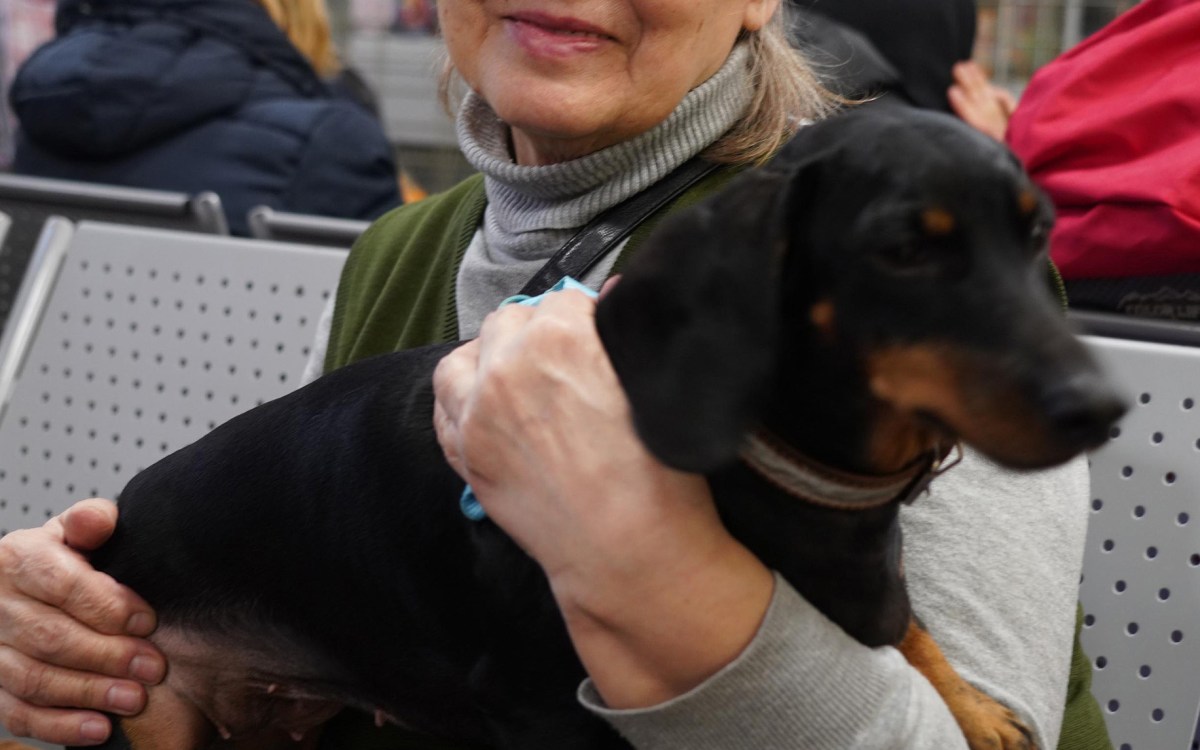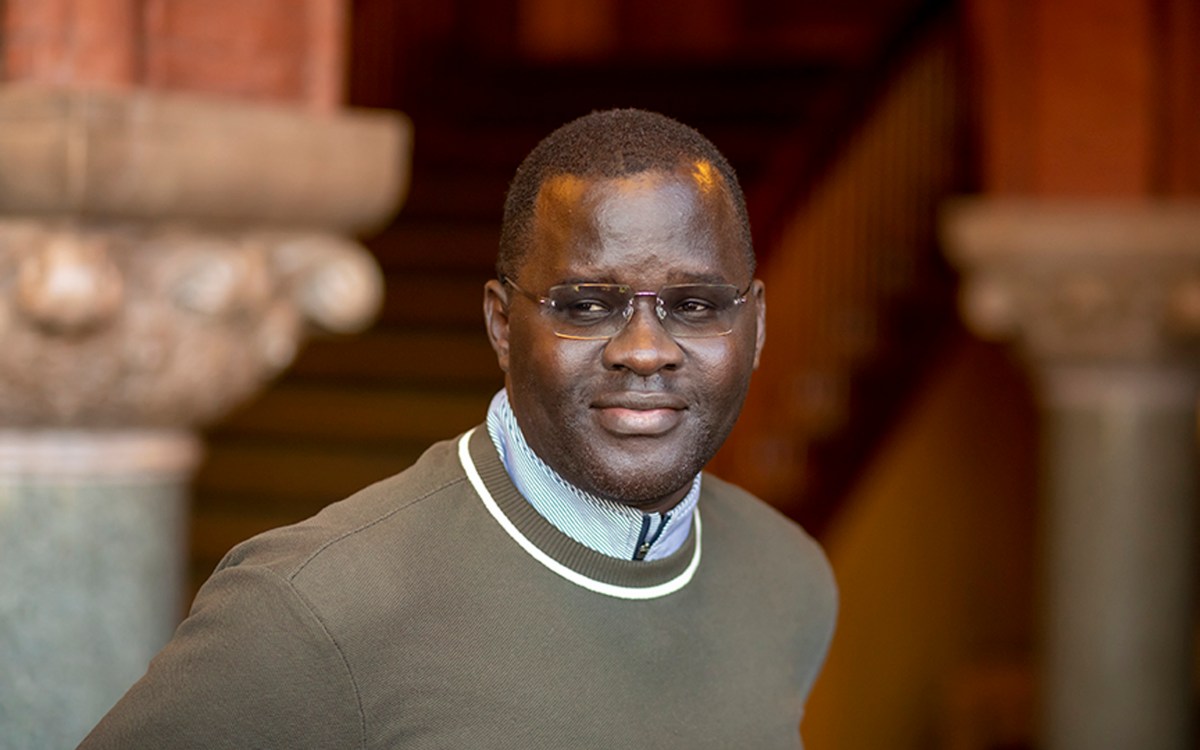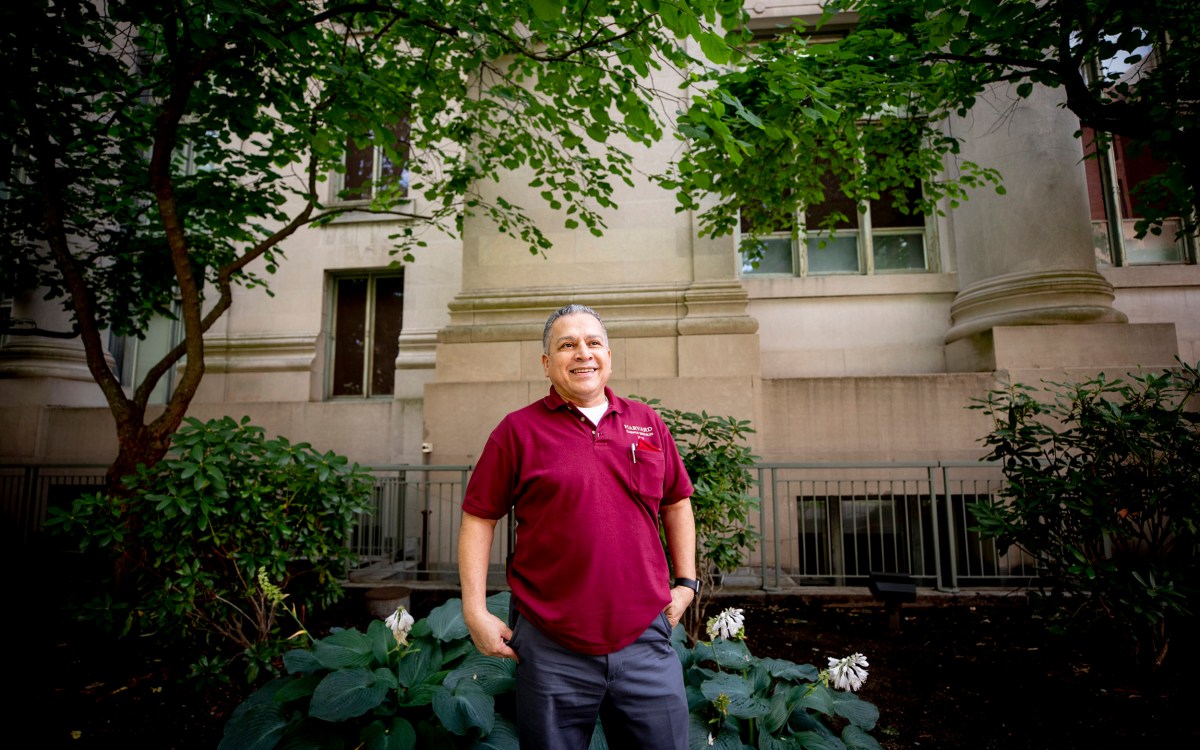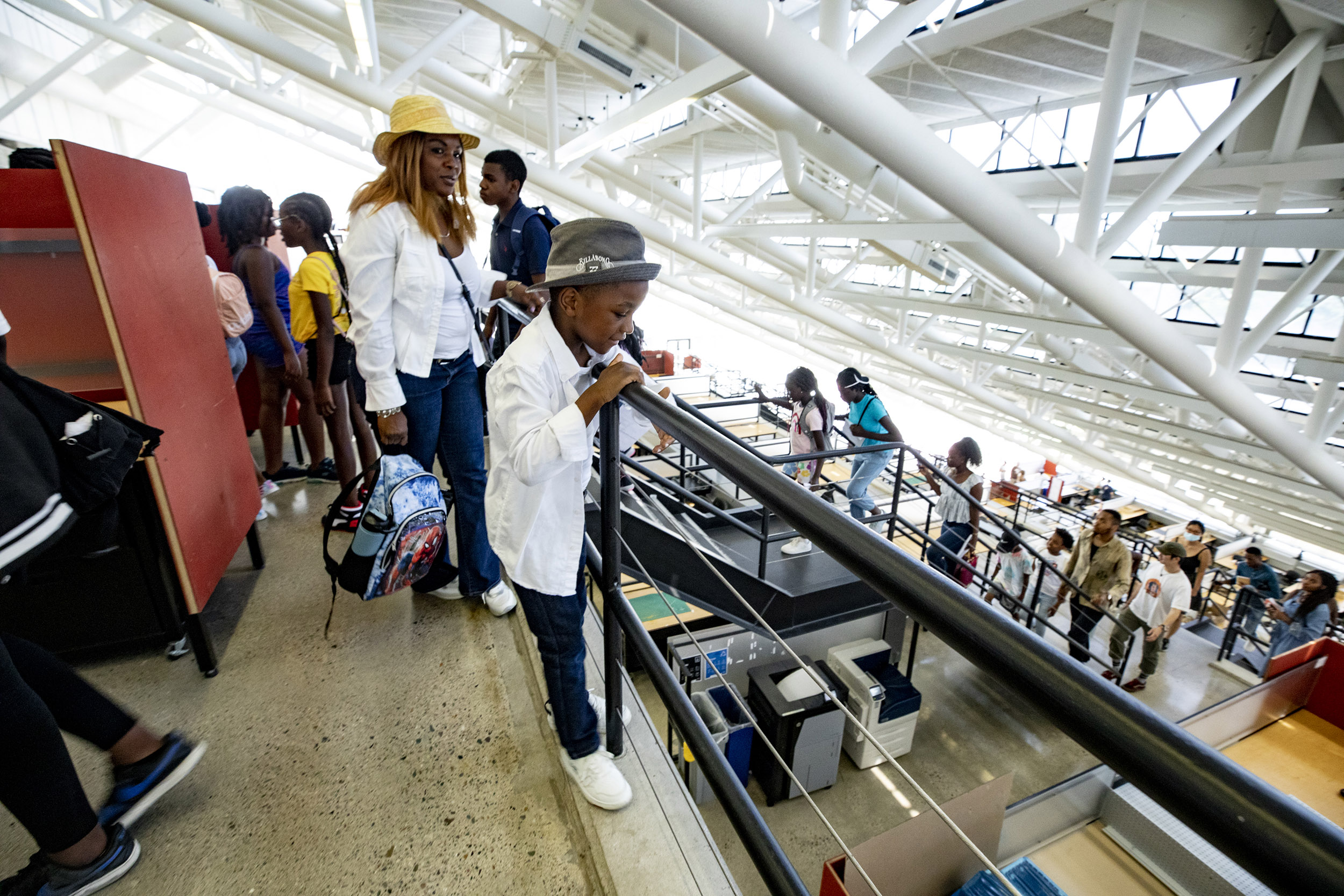
Elizabeth Wando and son Barack tour campus as part of the Welcoming Refugees summer program.
Rose Lincoln/Harvard Staff Photographer
Road map for immigrants in new land
Welcoming Refugees guidebook offers newcomers information, broadens student creators’ worldview
Khin Oo was born in a refugee camp on the border of Thailand and Myanmar as a stateless person 20 years ago. The philosophy concentrator, who will be a sophomore this fall and now calls the U.S. home, is always eager to help those who find themselves in similar situations, and this summer served as one of eight fellows for the Welcoming Refugees project.
“Working on this project really made me reflect about my own experiences. How to better support my family [and] what we’ve been through, but also how I can use that to connect with the community,” Oo said.
Welcoming Refugees, part of the College’s Mindich Program in Community-Engaged Research, is led by Associate Professor in Practice of Urban Planning Daniel D’Oca at the Harvard Graduate School of Design. D’Oca, his colleagues at Interboro Partners, and students partnered with the African Community Center of Lowell to create a welcome guide, translated into French and Swahili, for incoming refugees and immigrants.
D’Oca reached out to his friend Gordon Donkoh-Halm, the community center’s founder, when he was invited to lead the summer project. Besides extending a hand to migrants, the project also aims to help students learn about the refugee resettlement process and the vibrant African community in Lowell.
During the span of 10 weeks this summer, students conducted focus groups in Lowell to better understand what immigrants and refugees need to know about the city, including housing, health care, education, food and wellness, and transportation. They met with various community leaders and business owners to ask them what they wish they had known when they first arrived. The priority was to “center community voices as much as possible,” the professor said.
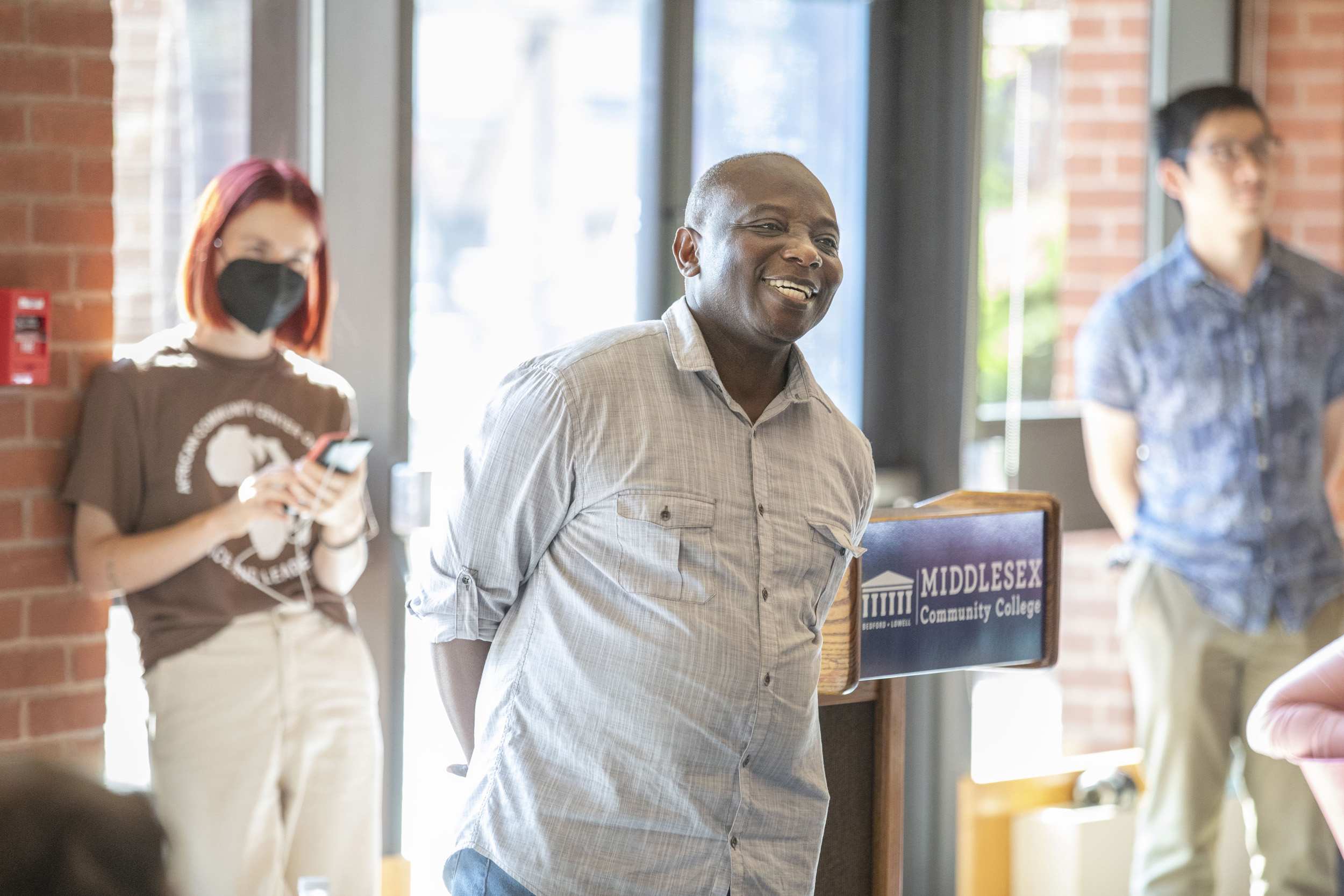
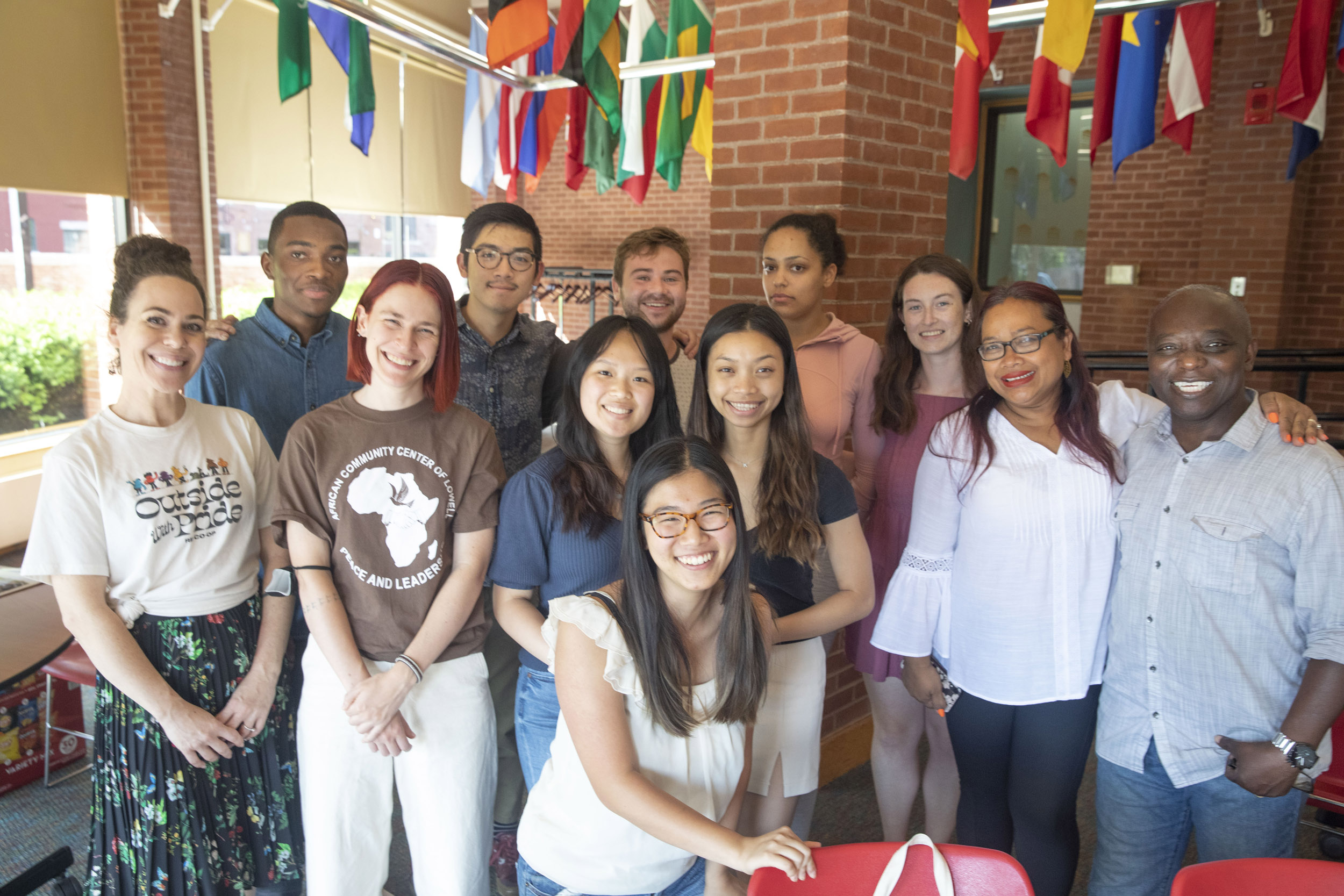
Gordon Donkoh-Halm, founder of the African Community Center of Lowell, addresses a Town Hall. Students in the Welcoming Refugees program, pictured with Lowell community members, attended to conduct the last focus group for their guidebook project.
Photos by Kris Snibbe/Harvard Staff Photographer
Marilyn Dike, a 25-year-old refugee from the Democratic Republic of the Congo, was heartened to see how willing the fellows were to listen and learn. Dike was the first person the Lowell community center helped when it opened its doors in 2016, and she participated in a town hall hosted by students last month. “It’s great to see that people are interested in you. It makes you feel like you matter. Like people want to learn about you,” she said.
Julian Li’s first feature for the guide was on mental health, how American society views that issue, and resources available to incoming African refugees. In early focus groups, the rising sophomore learned from community members that psychological issues are sometimes stigmatized in their home countries.
“It took quite a bit of learning and adjustments on their part to start to understand that mental health is something that can be treated and is no different than taking care of your physical health,” he said. “I felt it was something important to address in our guide.”
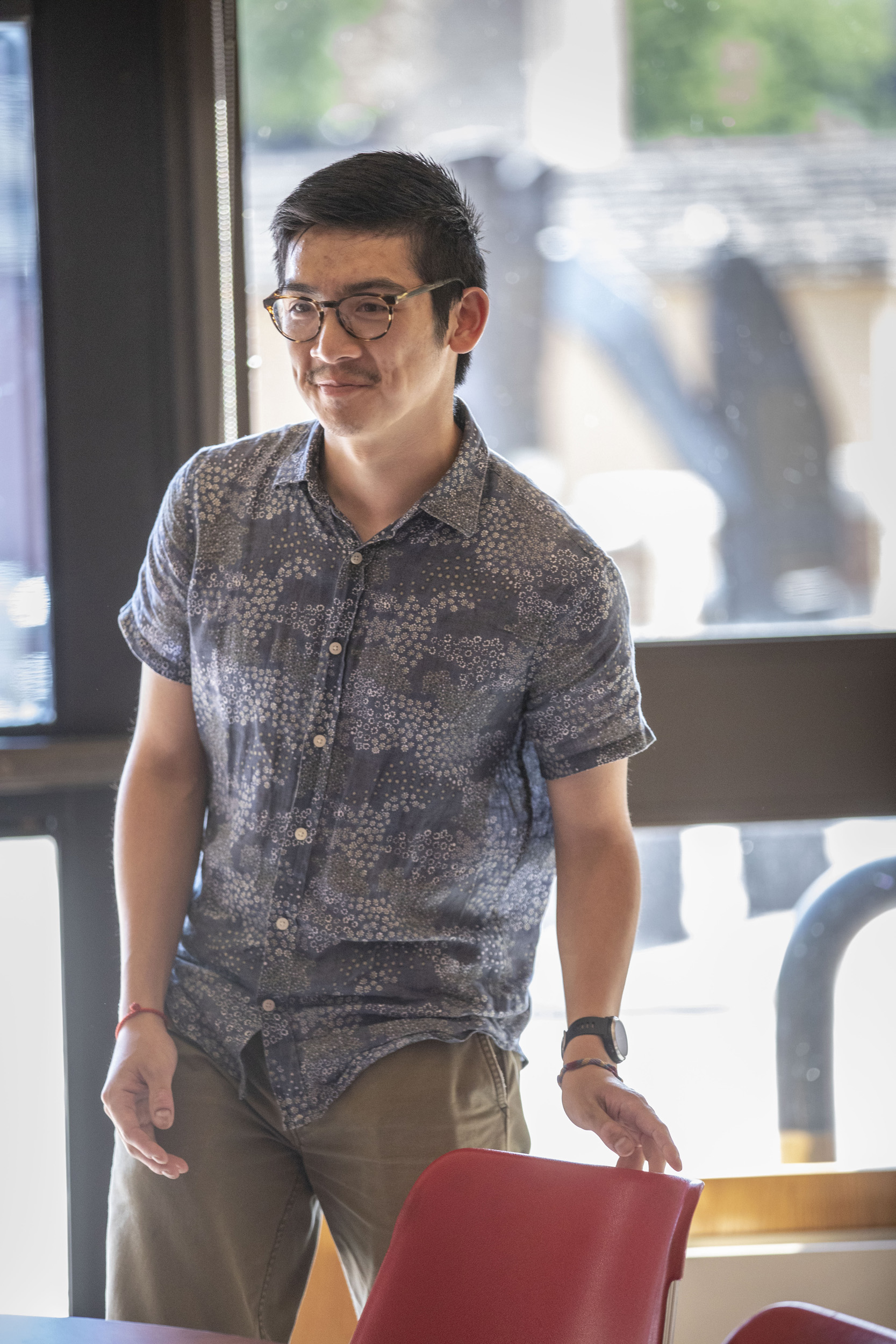
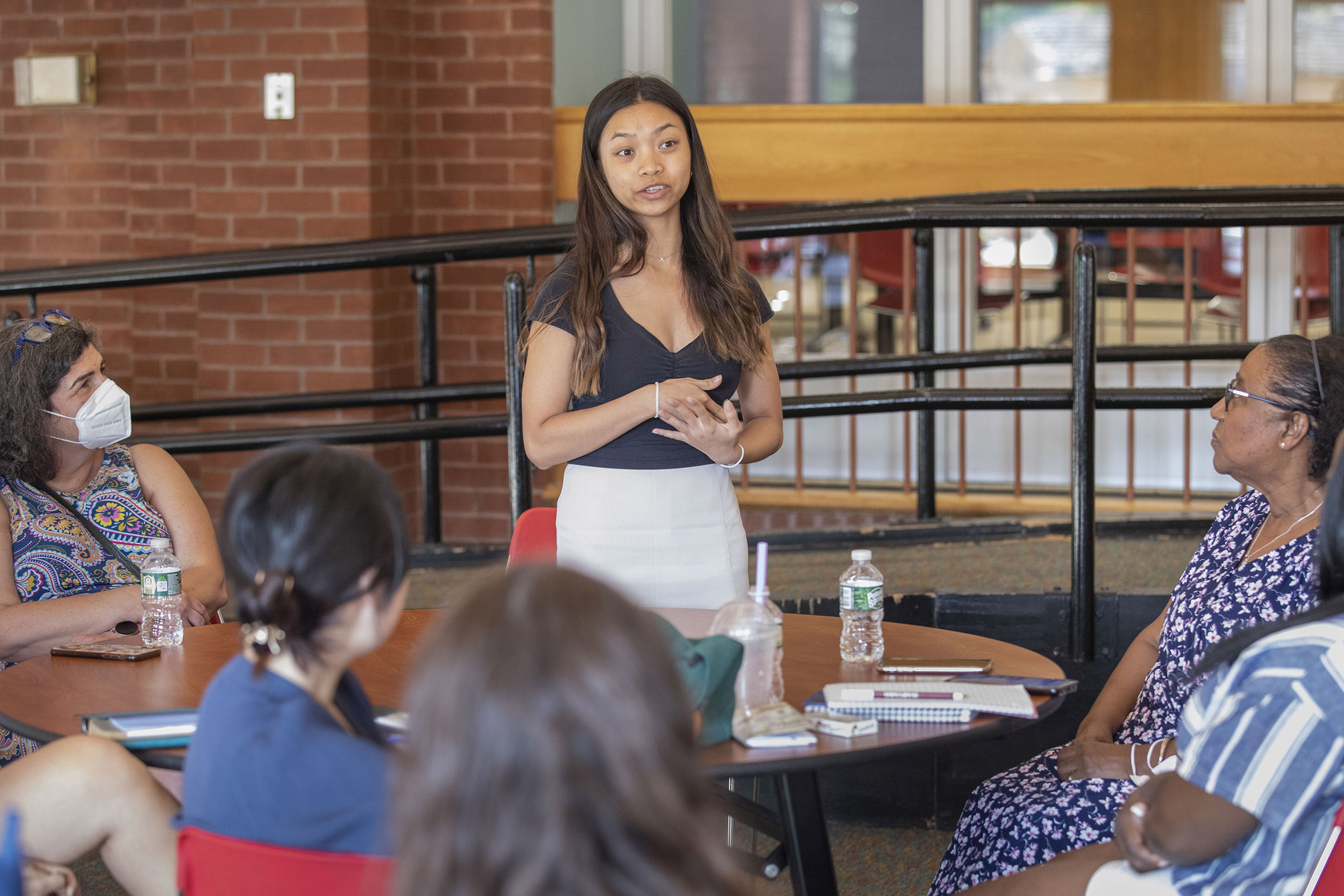
Fellows Julian Li and Khin Oo talk to Lowell residents.
Photos by Kris Snibbe/Harvard Staff Photographer
Meanwhile, Oo had the opportunity to write a feature about nontraditional educational resources after hearing from an immigrant who had worked as a lawyer in Africa and was eager to contribute to his new community in Lowell.
“Many people think that refugees and immigrants, when they first come to the United States, might not be well educated,” Oo said. “Meeting all these community members, I realized there are refugees and immigrants who are very well educated who come to the United States, and they want to further develop their careers.”
The resources in the welcome guide can prove crucial for incoming immigrants, especially younger people who need all the support they can get, Dike said. Language barriers or just lack of information can be detrimental to those coming to the U.S. for the first time. Dike called on everyone to provide support for those who are willing to work and willing to better the community.
Oo said that Welcoming Refugees, which will be officially completed by September, radically impacted her life. “As much as we hope that this welcome guide and this project has been helpful for the African community involved, it’s [also] been a very life-changing summer for me,” the 20-year-old said. “It made me realize I can incorporate my identity and my background into what I do.”



